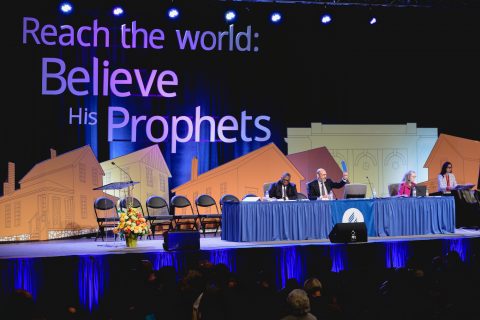
by Daniel McGrath | Oct 15, 2018 | Battle Creek, MI
When the 2015 General Conference (GC) session in San Antonio voted not to allow divisions to ordain women in their territory, it created a challenge within the church. Some church organizations had prematurely voted to allow the ordination of women pastors and now found themselves out of compliance with church policy.
Due to the divisive nature of the issue and lack of overwhelming consensus when the GC delegates voted, many entities chose to continue on their course to ordain women pastors and disregard the vote taken in San Antonio. What would the GC do to bring these entities in line with the vote of the GC in session?
Almost three years of prayer, committee meetings, dialogue and debate led to the creation of the Unity Document. This policy document was the second attempt given to the Executive Committee at finding an acceptable process to keep the Seventh-day Adventist Church organization unified. When it was presented to the Committee for discussion, over 35 people spoke against the document with many of the same arguments heard in 2015. While the Unity Document may address multiple area of noncompliance, many perceived it to be directed to the women’s ordination issue.
For those against this new policy, the main issue was one of conscience. They urged the constituents to allow those who are conscientiously objecting to current policy to do so. To force compliance in matters of conscience, they argued, gave church leadership too much power and amounted to administrative overreach. They stressed unintended consequences by superseding current policies designed to deal with these very issues and expressed concern that a new culture of suspicion and mistrust would be the result.
Of the nearly 20 people who stood to speak in favor of adopting the document, the arguments centered around the need to honor the vote taken in San Antonio. They emphasized the bad precedent that would be set by going against the vote of the world church. They worried that not dealing with this issue would lead to more disunity, confusion and congregationalism. They argued all secular organizations have policies and the church is no different. To them, this was an issue of respecting the consciences of the world body and the decision made at the highest level of church government.
Much of the discussion contradicted what was shared by the drafters of the document at the beginning of the meeting. Ted Wilson stressed that this document did not amount to an administrative overreach. Each level of church organization is responsible to the next highest level and this just ensures that that process is followed. If the next highest level of governance chooses to ignore an issue of noncompliance, this new document would permit the next highest level to deal with it. The compliance committees are responsible to the administrative committees already set up to deal with these issues and therefore serve as a safeguard against overreach.
David Trim, a statistician, shared that there was unanimous support around the world for due process to take place. However, in the event that due process is exhausted and if there were still issues of noncompliance, two-thirds of the world church supported additional consequences and did not want issues of noncompliance to be ignored. The church clearly desires us to be unified organizationally and wants the vote of the GC sessions to be followed. That was again demonstrated when the Unity Document was adopted by Executive Committee vote. It passed with 60% in favor of the process outlined.
What remains now is the careful process of examining compliance in areas where policy has been willfully ignored. Addressing this will undoubtedly create hardship and pain for some entities but with the Holy Spirit’s help and with the grace of Jesus, the church can recover and move forward in unified mission.
Daniel McGrath serves as pastor for the Sparta and Three Angels Fellowship Seventh-day Adventist churches. He is also a contributing writer for the Communication Department of the Michigan Conference.
